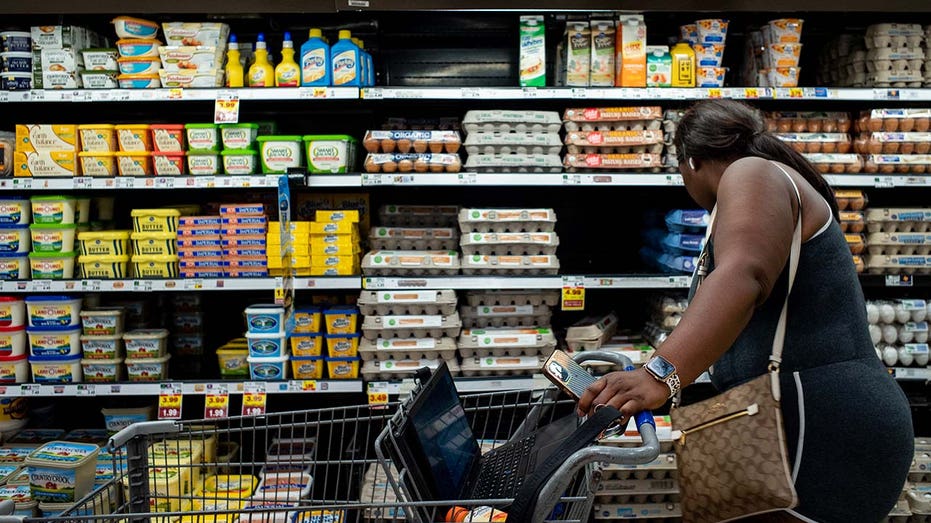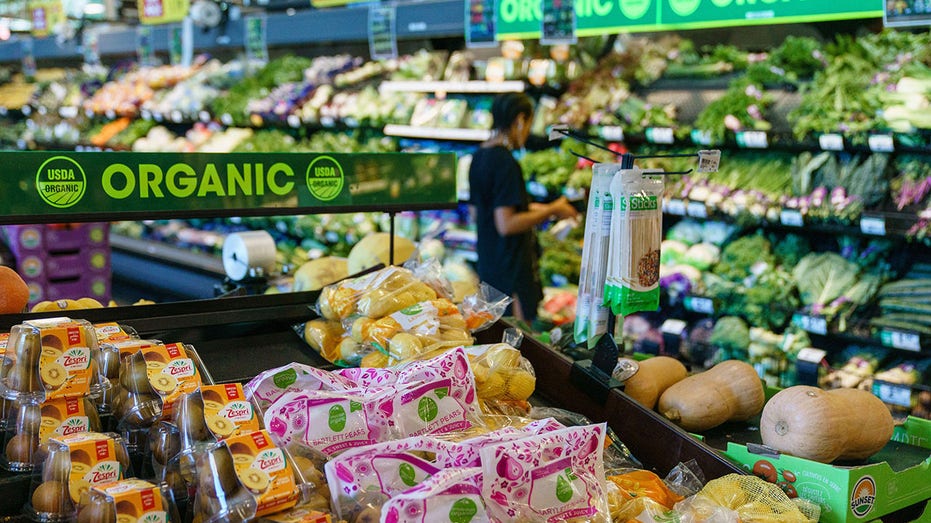Kroger-Albertsons merger in jeopardy
Kroger-Albertson's deal would be largest proposed supermarket merger in US history
The Federal Trade Commission (FTC) sued to block the proposed $24.6 billion merger of Kroger and Albertsons, alleging that the deal is anticompetitive.
The deal between the rival grocers has faced fierce pushback from lawmakers and the FTC over concerns that it would lead to higher prices and lower-quality goods for millions of Americans.
"Kroger’s acquisition of Albertsons would lead to additional grocery price hikes for everyday goods, further exacerbating the financial strain consumers across the country face today," said Henry Liu, director of the FTC’s Bureau of Competition.
SOME DEMOCRATS IN CONGRESS CALL ON FTC TO BLOCK ALBERTSONS-KROGER MERGER
Liu said that consumers had already been battling with the rising cost of groceries over the past few years.
He argued that "workers would also suffer under this deal, facing the threat of their wages dwindling, benefits diminishing, and their working conditions deteriorating."

A customer shops for eggs in a Kroger grocery store on Aug. 15, 2022, in Houston, Texas. (Photo by Brandon Bell/Getty Images / Getty Images)
In December, Sens. Elizabeth Warren, D-Mass., Mazie Hirono, D-Hawaii, Cory Booker, D-N.J., and Bernie Sanders, I-Vt., joined by Reps. Summer Lee, D-Pa., and Alexandria Ocasio-Cortez, D-N.Y., tried to stop the merger, telling FTC Chair Lina Khan that it would negatively impact "consumers, workers, farmers, and other food suppliers across the country."
However, Albertsons argues that the deal, which would be the largest supermarket merger in U.S. history, would do the exact opposite and, in part, expand competition, lower prices and increase associate wages.
FTC TRIES AGAIN TO BLOCK MICROSOFT’S ACQUISITION OF ACTIVISION

Shoppers are seen in a Kroger supermarket on Oct. 14, 2022, in Atlanta, Georgia. (ELIJAH NOUVELAGE/AFP via Getty Images / Getty Images)
If the FTC is successful, "it would be hurting customers and helping strengthen larger, multi-channel retailers such as Amazon, Walmart and Costco – the very companies the FTC claims to be reining in – by allowing them to continue increasing their growing dominance of the grocery industry," an Albertsons spokesperson told FOX Business.
| Ticker | Security | Last | Change | Change % |
|---|---|---|---|---|
| WMT | WALMART INC. | 131.18 | +4.24 | +3.34% |
| AMZN | AMAZON.COM INC. | 210.32 | -12.37 | -5.55% |
| COST | COSTCO WHOLESALE CORP. | 1,001.16 | +11.87 | +1.20% |
The company claimed that the merger would "ensure our neighborhood supermarkets can better compete with these mega retailers."
In a statement to FOX Business, Kroger said that its business model is to invest in lowering prices for customers and that it has reduced prices every year since 2003.
"This business model is immediately applied to merger companies," Kroger said.
In order to secure antitrust approval, the FTC said both chains issued a proposal to divest several hundred stores and select other assets to C&S Wholesale Grocers (C&S), which operates 23 supermarkets and a single retail pharmacy.
But certain lawmakers and the FTC don't think the proposal to unload just over 400 stores and other assets to C&S is enough.
| Ticker | Security | Last | Change | Change % |
|---|---|---|---|---|
| KR | THE KROGER CO. | 67.50 | +0.83 | +1.24% |
| ACI | ALBERTSONS COS INC | 18.09 | +0.30 | +1.69% |
The FTC called it an "inadequate divestiture" that "falls far short of mitigating the lost competition between Kroger and Albertsons."
GET FOX BUSINESS ON THE GO BY CLICKING HERE
Currently, Albertsons considers itself "one of the largest food and drug retailers in the United States" with more than 2,200 stores.
It owns several well-known banners, including Safeway, Vons, Jewel-Osco, Shaw's, Acme, Star Market, Haggen, Carrs, Kings Food Markets and Balducci's Food Lovers Market.
The Kroger Co. also owns several companies, including City Market, Dillons, Food 4 Less, Fred Meyer, Kroger and Ralphs.
If the chains merged, the companies would operate more than 5,000 stores and approximately 4,000 retail pharmacies and would employ nearly 700,000 employees across 48 states.





















